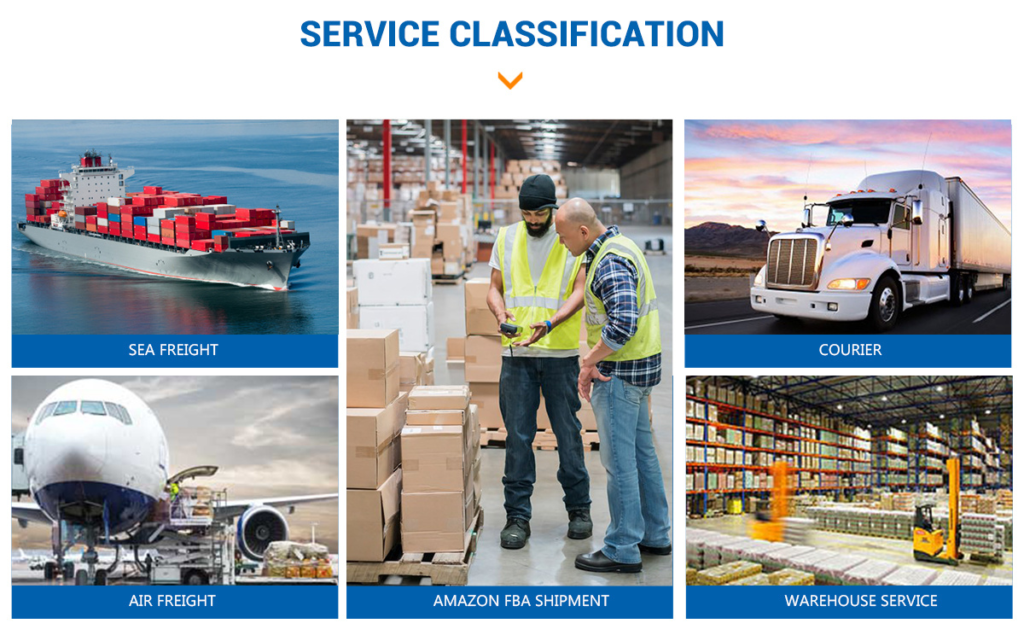Shipment Classification Agent (1 years diploma)
Shipment Classification Agent click here
Brief Job Description
Shipment Classification Agents are also known as Classification Executives. Individuals in this role, who
work out of corporate offices, are responsible for updating the system with pre-clearance documentation
and creating the Bill of Entry/ Shipping Bill. They are a key part of the clearance team as they perform a
vital role of classification of shipments according to their type and document the same.

Personal Attributes
This job requires the individual to work well with his/her team and achieve joint goals. The individual must
be able to prioritize and execute tasks within scheduled time limits. The individual should be able to
maintain high concentration levels throughout his/her shift.
Minimum Educational Qualification & Experience
12th Class with 6 Months of experience
relevant experience
OR
10th Class (+ ITI (2 years after Class
10th))
OR
10th Class (and pursuing continuous
regular schooling)
OR
Certificate-NSQF (Courier Associate –
Level 3) with 2 Years of experience
relevant experience
Minimum Level of Education for Training in
School
Pre-Requisite License or Training NA
Minimum Job Entry Age 18 Years
Last Reviewed On NA
Next Review Date NA
NSQC Approval Date
Version 3.0
Prepare for classification
Description
This unit is about preparing for classification
Elements and Performance Criteria
Prepare desk and documents
To be competent, the user/individual on the job must be able to:
PC1. ensure availability of stationary like paper, pen, etc. for taking notes (if required)
PC2. in the absence of the reference books or stationary, borrow a spare from colleague or contact
administration team to send an office boy to the nearby book store where the items would be
available
PC3. verify ownership of the latest harmonization system (hs) codes book authorized by customs.
Prepare computer system
To be competent, the user/individual on the job must be able to:
PC4. switch on the computer and login using company credentials
PC5. boot-up software used for performing the classifying activities
PC6. if there are any issues with the booting of the software, contact an executive in the IT
department to help with the same
PC7. check schedule for the day and flag entries pending from previous day.
PC8. accordingly, update status of the entry.
Knowledge and Understanding (KU)
The individual on the job needs to know and understand:
KU1. knowledge of organizational procedure
KU2. knowledge of paperwork to be completed on a requirement basis
KU3. procedures for dealing with errors committed with reference to the filing process
KU4. risk and impact of not following defined procedures/work instructions .
KU5. knowledge of all relevant safety and security procedures.
KU6. knowledge of operating a computer.
KU7. knowledge on HS codes of goods based on customs
KU8. knowledge on import/export controls
KU9. knowledge of using the company software for online documentation, classification and
creating the bill of entry/ shipping bill
KU10. knowledge of the different websites and software used to create bill of entry/shipping bill
KU11. ability to follow the company login protocols and perform the tasks for the day.
Generic Skills (GS)
User/individual on the job needs to know how to:
GS1. ability to manage a checklist for import clearance
GS2. read the HS-codes for customs from the latest/updated manual provided.
GS3. communicate clearly with colleagues
GS4. regularly communicate with all employees in the chain of activities to ensure activities are
running smoothly
GS5. share best practices with peers and juniors.
GS6. act objectively , rather than impulsively or emotionally when faced with difficult/stressful or
emotional situations

GS7. prioritize and execute tasks within the scheduled time limits
GS8. maintain schedules and punctuality. avoid absenteeism.
GS9. be a team player and achieve joint goals
GS10. effectively manage stress that could arise due to stringent timelines or long working hours.
GS11. develop a positive attitude to keep stress levels low
GS12. speak to customer clearly and resolve the issue if a customer’s query is redirected to the
shipment classification team.
GS13. identify trends/common causes for errors and suggest possible solutions to the customs
broker.
GS14. handle day to day problems like delays, staffing shortage, etc.
GS15. verify HS codes from the latest/updated manual.
GS16. identify basic errors in the filing process and find the respective solutions
GS17. ability to concentrate on task at hand and complete it without errors
Perform classification
Description
This unit is about performing classification
Elements and Performance Criteria
Classify incoming/outgoing goods
To be competent, the user/individual on the job must be able to:
PC1. verify the consignments that require pre-clearance.
PC2. ensure that the pre-clearance status and information pertaining to it is updated by the
system.
PC3. review documents handed over by the customs support agent
PC4. request product description of the consignment (if needed).
PC5. ensure all customs related documents are collected from the classification support agent.
PC6. depending on the type of consignment, enter data from the document into the system
Create Bill of Entry/Shipping Bill
To be competent, the user/individual on the job must be able to:
PC7. determine type of consignment.
PC8. classify HS code according to the type of consignment
PC9. create bills of entry/shipping bills based on consignment type (form 4/5 or an SEZ/EOU bill of
entry).
PC10. maintain and update a checklist for import/export clearances
PC11. escalate high priority errors to the customs broker.
PC12. resolve amendments proposed by the customs broker.
Knowledge and Understanding (KU)
The individual on the job needs to know and understand:
KU1. knowledge of organizational procedure
KU2. knowledge of paperwork to be completed on a requirement basis
KU3. procedures for dealing with errors committed with reference to the filing process
KU4. risk and impact of not following defined procedures/work instructions .
KU5. knowledge of all relevant safety and security procedures.
KU6. knowledge of operating a computer.
KU7. knowledge on HS codes of goods based on customs
KU8. knowledge on import/export controls
KU9. knowledge of using the company software for online documentation, classification and
creating the bill of entry/shipping bill
KU10. knowledge of the different websites and software used to create bill of entry/shipping bill
KU11. ability to follow the company login protocols and perform the tasks for the day.
Generic Skills (GS)
User/individual on the job needs to know how to:
GS1. ability to manage a checklist for import clearance
GS2. read the HS-codes for customs from the latest/updated manual provided.
GS3. communicate clearly with colleagues
GS4. regularly communicate with all employees in the chain of activities to ensure activities are
running smoothly
GS5. share best practices with peers and juniors.
GS6. act objectively , rather than impulsively or emotionally when faced with difficult/stressful or
emotional situations
GS7. prioritize and execute tasks within the scheduled time limits
GS8. maintain schedules and punctuality. avoid absenteeism.
GS9. be a team player and achieve joint goals
GS10. effectively manage stress that could arise due to stringent timelines or long working hours.
GS11. develop a positive attitude to keep stress levels low
GS12. speak to customer clearly and resolve the issue if a customer’s query is redirected to the
shipment classification team.
GS13. identify trends/common causes for errors and suggest possible solutions to the customs
broker.
GS14. handle day to day problems like delays, staffing shortage, etc.
GS15. verify hs codes from the latest/updated manual.
GS16. identify basic errors in the filing process and find the respective solutions
GS17. ability to concentrate on task at hand and complete it without errors
Post classification activities
Description
This unit is about performing post classification activities
Elements and Performance Criteria
Reporting and documentation
To be competent, the user/individual on the job must be able to:
PC1. perform an extensive check for errors and pending work
PC2. communicate mailing errors to the customs team at the airport
PC3. communicate non-clearance errors to the network control team at the airport
PC4. report end-of-day pending work to the customs broker
PC5. execute all necessary actions given as solutions by the customs broker
Logoff computer
To be competent, the user/individual on the job must be able to:
PC6. save all data, safely log off and switch off the computer.
PC7. dispose any unnecessary documents or papers
PC8. clean up the desk and leave the important/necessary documents locked in the desk draw
PC9. convey pending work to colleagues as they could help move it forward the next working day.
Knowledge and Understanding (KU)
The individual on the job needs to know and understand:
KU1. knowledge of organizational procedure
KU2. knowledge of paperwork to be completed on a requirement basis
KU3. procedures for dealing with errors committed with reference to the filing process
KU4. risk and impact of not following defined procedures/work instructions .
KU5. knowledge of all relevant safety and security procedures.
KU6. knowledge of operating a computer.
KU7. knowledge on HS codes of goods based on customs
KU8. knowledge on import/export controls
KU9. knowledge of using the company software for online documentation, classification and
creating the bill of entry/shipping bill
KU10. knowledge of the different websites and software used to create bill of entry/shipping bill
KU11. ability to follow the company login protocols and perform the tasks for the day.

Generic Skills (GS)
User/individual on the job needs to know how to:
GS1. ability to manage a checklist for import clearance
GS2. read the HS-codes for customs from the latest/updated manual provided.
GS3. communicate clearly with colleagues
GS4. regularly communicate with all employees in the chain of activities to ensure activities are
running smoothly
GS5. share best practices with peers and juniors.
GS6. act objectively , rather than impulsively or emotionally when faced with difficult/stressful or
emotional situations
GS7. prioritize and execute tasks within the scheduled time limits
GS8. maintain schedules and punctuality. avoid absenteeism.
GS9. be a team player and achieve joint goals
GS10. effectively manage stress that could arise due to stringent timelines or long working hours.
GS11. develop a positive attitude to keep stress levels low
GS12. speak to customer clearly and resolve the issue if a customer’s query is redirected to the
shipment classification team.
GS13. identify trends/common causes for errors and suggest possible solutions to the customs
broker.
GS14. handle day to day problems like delays, staffing shortage, etc.
GS15. verify HS codes from the latest/updated manual.
GS16. identify basic errors in the filing process and find the respective solutions
GS17. ability to concentrate on task at hand and complete it without errors
Maintain health, safety and security standards during shipment classification
Description
This unit is about maintaining health, safety and security standards during shipment classification
Elements and Performance Criteria
Maintain health, safety and security measures during all activities
To be competent, the user/individual on the job must be able to:
PC1. Comply with data safety regulations of the organization
PC2. Follow organization procedures with respect to security and confidentiality
PC3. Maintain clean work table area
PC4. Recognize and report unsafe conditions and practices
Knowledge and Understanding (KU)
The individual on the job needs to know and understand:
KU1. knowledge of organizational procedures
KU2. knowledge of documentation and reporting as per organization’s mandate
KU3. procedures for dealing with errors committed with reference to the filing process
KU4. risk and impact of not following defined procedures/work instructions
KU5. knowledge of all relevant safety and security procedures
KU6. knowledge of operating a computer.
KU7. knowledge on hs codes of goods based on customs
KU8. knowledge on import/export controls
KU9. knowledge of using the company software for online documentation, classification and
creating the bill of entry/shipping bill.
KU10. knowledge of the different websites and software used to create bill of entry/shipping bill.
KU11. ability to follow the company login protocols and perform the tasks for the day.
Generic Skills (GS)
User/individual on the job needs to know how to:
GS1. ability to manage a checklist for import clearance.
GS2. read the HS-codes for customs from the latest/updated manual provided.
GS3. communicate clearly with colleagues.
GS4. regularly communicate with all employees in the chain of activities to ensure activities are
running smoothly.
GS5. share best practices with peers and juniors.
GS6. act objectively , rather than impulsively or emotionally when faced with difficult/stressful or
emotional situations
GS7. prioritize and execute tasks within the scheduled time limits
GS8. maintain schedules and punctuality. avoid absenteeism.
GS9. be a team player and achieve joint goals.
GS10. effectively manage stress that could arise due to stringent timelines or long working hours.
GS11. develop a positive attitude to keep stress levels low.
GS12. speak to customer clearly and resolve the issue if a customer’s query is redirected to the
shipment classification team.
GS13. identify trends/common causes for errors and suggest possible solutions to the customs
broker.

GS14. handle day to day problems like delays, staffing shortage, etc.
GS15. verify HS codes from the latest/updated manual.
GS16. identify basic errors in the filing process and find the respective solutions.
GS17. ability to concentrate on task at hand and complete it without errors
Employability Skills (60 Hours)
Description
This unit is about employability skills, Constitutional values, becoming a professional in the 21st Century,
digital, financial, and legal literacy, diversity and Inclusion, English and communication skills, customer
service, entrepreneurship, and apprenticeship, getting ready for jobs and career development.
Scope
The scope covers the following :
Introduction to Employability Skills
Constitutional values – Citizenship
Becoming a Professional in the 21st Century
Basic English Skills
Career Development & Goal Setting
Communication Skills
Diversity & Inclusion
Financial and Legal Literacy
Essential Digital Skills
Entrepreneurship
Customer Service
Getting ready for Apprenticeship & Jobs
Elements and Performance Criteria
Introduction to Employability Skills

To be competent, the user/individual on the job must be able to:
PC1. identify employability skills required for jobs in various industries
PC2. identify and explore learning and employability portals
Constitutional values – Citizenship
To be competent, the user/individual on the job must be able to:
PC3. recognize the significance of constitutional values, including civic rights and duties,
citizenship, responsibility towards society etc. and personal values and ethics such as
honesty, integrity, caring and respecting others, etc.
PC4. follow environmentally sustainable practices
Becoming a Professional in the 21st Century
To be competent, the user/individual on the job must be able to:
PC5. recognize the significance of 21st Century Skills for employment
PC6. practice the 21st Century Skills such as Self-Awareness, Behaviour Skills, time management,
critical and adaptive thinking, problem-solving, creative thinking, social and cultural
awareness, emotional awareness, learning to learn for continuous learning etc. in personal
and professional life
Basic English Skills
To be competent, the user/individual on the job must be able to:
PC7. use basic English for everyday conversation in different contexts, in person and over the
telephone
PC8. read and understand routine information, notes, instructions, mails, letters etc. written in
English
PC9. write short messages, notes, letters, e-mails etc. in English
Career Development & Goal Setting
To be competent, the user/individual on the job must be able to:
PC10. understand the difference between job and career
PC11. prepare a career development plan with short- and long-term goals, based on aptitude
Communication Skills
To be competent, the user/individual on the job must be able to:
PC12. follow verbal and non-verbal communication etiquette and active listening techniques in
various settings
PC13. work collaboratively with others in a team
Diversity & Inclusion
To be competent, the user/individual on the job must be able to:
PC14. communicate and behave appropriately with all genders and PwD
PC15. escalate any issues related to sexual harassment at workplace according to POSH Act
Financial and Legal Literacy
To be competent, the user/individual on the job must be able to:
PC16. select financial institutions, products and services as per requirement
PC17. carry out offline and online financial transactions, safely and securely
PC18. identify common components of salary and compute income, expenses, taxes, investments
etc
PC19. identify relevant rights and laws and use legal aids to fight against legal exploitation
Essential Digital Skills
To be competent, the user/individual on the job must be able to:
PC20. operate digital devices and carry out basic internet operations securely and safely
PC21. use e- mail and social media platforms and virtual collaboration tools to work effectively
PC22. use basic features of word processor, spreadsheets, and presentations
Entrepreneurship
To be competent, the user/individual on the job must be able to:
PC23. identify different types of Entrepreneurship and Enterprises and assess opportunities for
potential business through research
PC24. develop a business plan and a work model, considering the 4Ps of Marketing Product, Price,
Place and Promotion
PC25. identify sources of funding, anticipate, and mitigate any financial/ legal hurdles for the
potential business opportunity
Customer Service
To be competent, the user/individual on the job must be able to:
PC26. identify different types of customers
PC27. identify and respond to customer requests and needs in a professional manner.
PC28. follow appropriate hygiene and grooming standards
Getting ready for apprenticeship & Jobs
To be competent, the user/individual on the job must be able to:
PC29. create a professional Curriculum vitae (Résumé)
PC30. search for suitable jobs using reliable offline and online sources such as Employment
exchange, recruitment agencies, newspapers etc. and job portals, respectively
PC31. apply to identified job openings using offline /online methods as per requirement
PC32. answer questions politely, with clarity and confidence, during recruitment and selection
PC33. identify apprenticeship opportunities and register for it as per guidelines and requirements
Knowledge and Understanding (KU)
The individual on the job needs to know and understand:
KU1. need for employability skills and different learning and employability related portals
KU2. various constitutional and personal values
KU3. different environmentally sustainable practices and their importance
KU4. Twenty first (21st) century skills and their importance
KU5. how to use English language for effective verbal (face to face and telephonic) and written
communication in formal and informal set up
KU6. importance of career development and setting long- and short-term goals
KU7. about effective communication
KU8. POSH Act
KU9. Gender sensitivity and inclusivity
KU10. different types of financial institutes, products, and services
KU11. how to compute income and expenditure
KU12. importance of maintaining safety and security in offline and online financial transactions
KU13. different legal rights and laws
KU14. different types of digital devices and the procedure to operate them safely and securely
KU15. how to create and operate an e- mail account and use applications such as word processors,
spreadsheets etc.
KU16. how to identify business opportunities
KU17. types and needs of customers
KU18. how to apply for a job and prepare for an interview
KU19. apprenticeship scheme and the process of registering on apprenticeship portal
Generic Skills (GS)

User/individual on the job needs to know how to:
GS1. read and write different types of documents/instructions/correspondence
GS2. communicate effectively using appropriate language in formal and informal settings
GS3. behave politely and appropriately with all
GS4. how to work in a virtual mode
GS5. perform calculations efficiently
GS6. solve problems effectively
GS7. pay attention to details
GS8. manage time efficiently
GS9. maintain hygiene and sanitization to avoid infection






